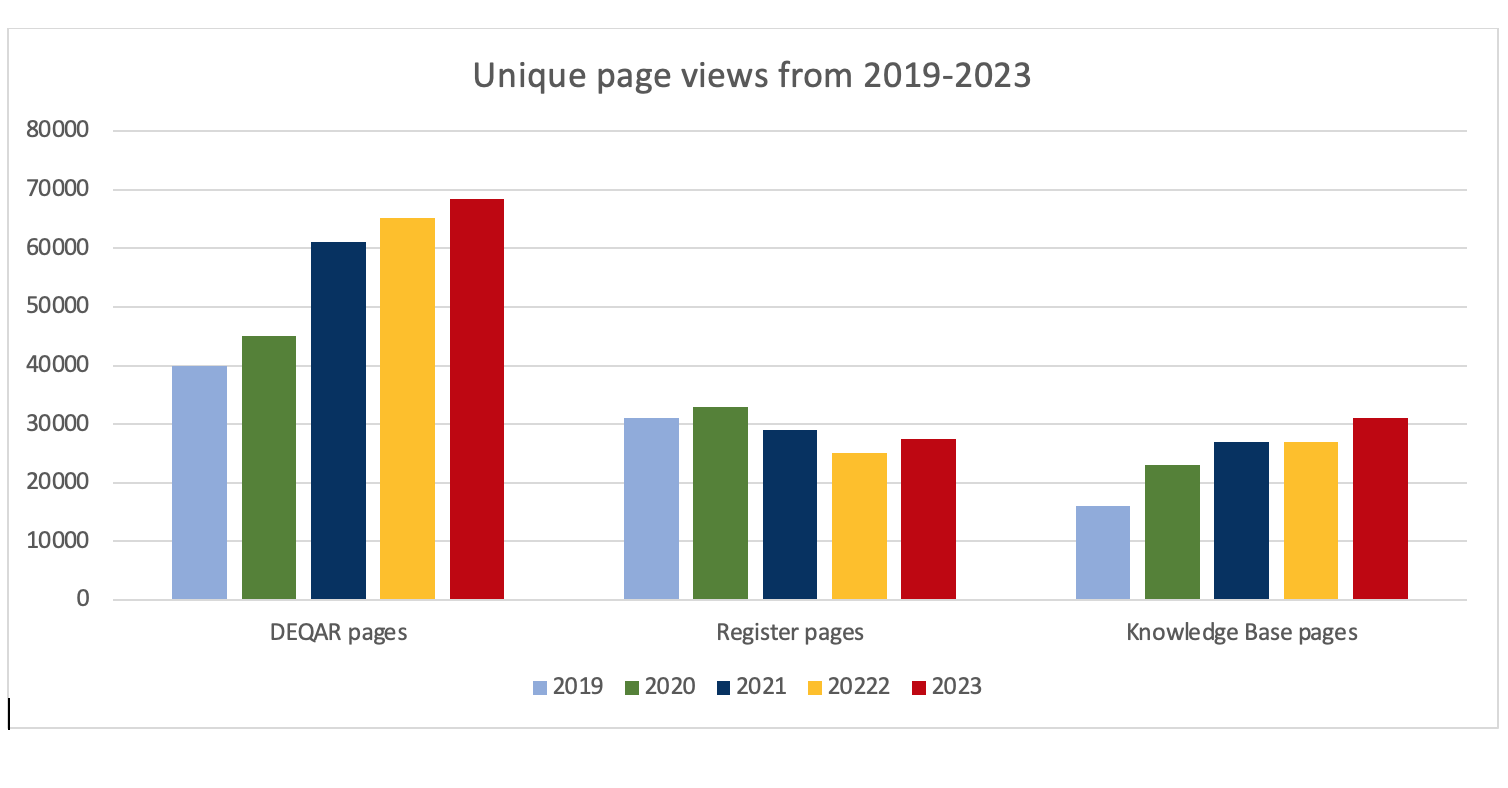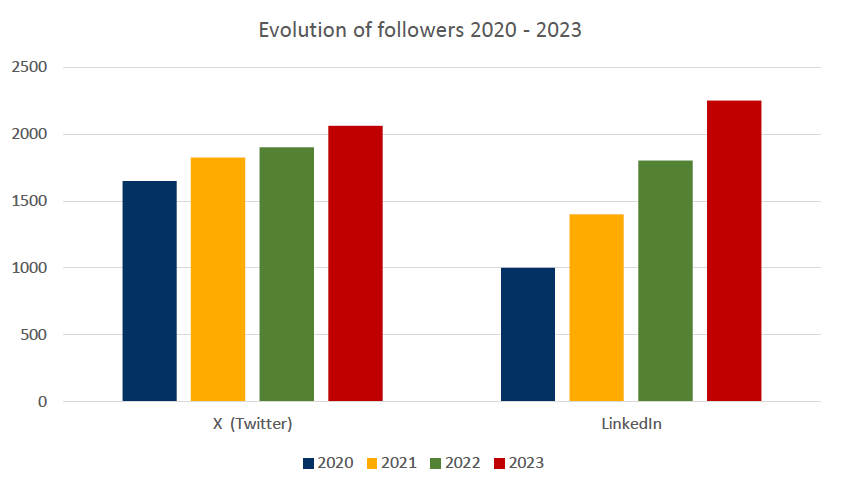Communication
Website
The website has always been EQAR’s main communication tool to address its target audiences. Since the launch of DEQAR in 2018, there has been a steady increase in website visitors. In 2023 the total came to > 79 000 visits, while there were 72 000 the previous year and 69 000 in 2021.
Almost 39% of all page views was on the DEQAR pages, followed by > 17% on the Knowledge Base pages and > 15% on the Register pages, both of which are linked from the database via the agency and country information.

Newsletters and social media
Newsletters
EQAR issued five newsletters in 2023, reaching each around 850 recipients.
Newsletter topics included information about the decisions of the Register Committee, general EQAR updates, external QA activities of EQAR-registered agencies, relevant policy updates and documents with regard to QA and the use of EQAR in the national QA frameworks of the EHEA countries, DEQAR updates, project updates as well as organisational updates.
Social Media
EQAR also remained active on social media, including X (former Twitter), LinkedIn and, to a lesser extent, Facebook. In 2023, 46 posts (tweets) led to a total of > 28 000 impressions (number of times users saw the tweet on twitter) and 2 156 engagements (number of times a user has interacted with a tweet), with an average engagement rate of 8%. EQAR gained 160 new followers over the year, reaching a total of 2 060.
A total of 19 LinkedIn posts were shared in 2023, generating an average engagement rate of 9.82% (the number of interactions divided by impressions). At the end of 2023 EQAR had around 2 250 LinkedIn followers.

Publications
The following documents were published and promoted in the newsletter as well as on social media in 2023:
- The IMINQA Thematic analysis “Aligning the legal frameworks with the ESG“ was published in February 2023.
- The EQAR Annual Report 2022 was published on the EQAR website in June 2023.
- The IMINQA Thematic analysis “Cross-Border Quality Assurance and Quality Assurance of Transnational Education” was published in May 2023.
- The QA FIT Paper “Analysis of Ministry Survey Responses” was published in October 2023.
The QA FIT analysis is part of a comprehensive exercise to collect concrete evidence on the scope and implementation of internal and external quality assurance policies and practices, addressing emerging issues beyond the current scope of the ESG. The analysis of Ministry survey responses offers valuable insights into the state of quality assurance in European Higher Education Area (EHEA) and perceptions of its future.
The survey results show that external QA results have led countries to introduce new (cluster) accreditation models, to review their provisions on the organisation of the quality assurance bodies, to transition from a centralised planning in education management to a greater autonomy of institutions, to facilitate the cooperation in the development of joint degree programmes, to change the system of financing in higher education (introducing a performance-related approach).
An overwhelming majority of respondents agreed that the development and implementation of QA had a positive impact on their higher education system and underscored the role of the ESG’s in fostering transparency and trust among member countries with a focus on accountability-driven objectives.
Considering the future perspective of the ESG, most of the ministry representatives agree that some form of minor or major revision of the current ESG is needed, and that fundamental values and social dimension issues should be addressed to some extent.
- More about the QA FIT project on the project pages of the EQAR website
- More about the QA FIT project activities in 2023 in the current annual report under “Contributing to the Development of the EHEA”
- More about the IMINQA project on the project pages of the EQAR website
- More about the IMINQA project activities in 2023 in the current annual report under “Contributing to the Development of the EHEA”
EQAR 15th anniversary
Fifteen years of EQAR merited a special occasion, especially in combination with the farewells of Colin Tück and Karl Dittrich.
This was celebrated in Brussels on 4 April, with an Anniversary and Farewell Reception. All our Brussels-based colleagues, stakeholders and other contacts were invited, as well as some central figures of EQAR’s past.
